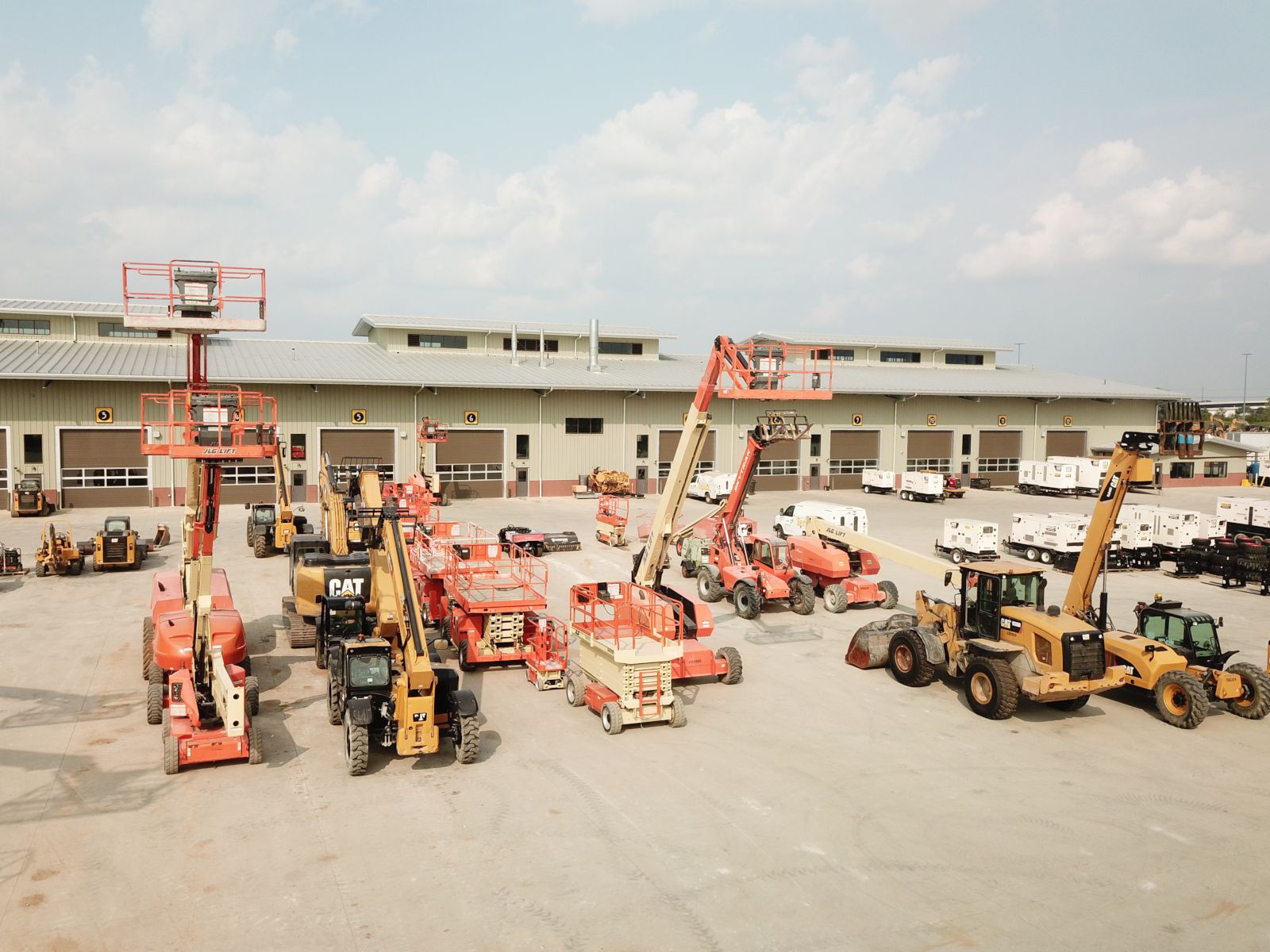Forklift Rental: Heavy Training Equipment for Warehousing and Extra
Forklift Rental: Heavy Training Equipment for Warehousing and Extra
Blog Article
Maximize Your Budget Plan by Recognizing the Costs Related To Building Tools Rentals
Understanding the full scope of prices connected with building equipment services is essential for optimizing your budget. While the initial rental cost may appear straightforward, numerous added expenses-- such as transportation, fuel surcharges, and maintenance-- can rapidly accumulate, influencing your financial planning. Furthermore, understanding numerous fees and the intricacies of rental contracts can assist avoid unexpected economic concerns. What methods can be utilized to effectively take care of these costs and guarantee an extra efficient rental experience?
Review of Rental Expenses
When thinking about construction equipment rentals, recognizing the linked expenses is paramount for reliable budgeting and job planning. Rental expenses can differ dramatically based on several variables, including devices kind, period of leasing, and area. The preliminary rental charge frequently mirrors the tools's market need and its linked operational capacities, affecting the general expense.
In enhancement to the base rental rate, ancillary costs might develop, such as transport charges, fuel additional charges, and upkeep charges. It is crucial to represent these extra expenses to precisely evaluate the complete expense of renting devices. The rental period can impact pricing; longer leasings may qualify for discounted prices, while short-term rentals might incur greater daily charges.

Malfunction of Rental Rates
An extensive understanding of rental rates is important for specialists and job managers intending to maximize their budgets. Rental prices for building devices commonly include numerous parts, consisting of base rates, time-based fees, and usage costs.
Base rates are the core charges connected with the leasing of the devices, commonly determined by the type and dimension of the machinery. These prices can vary considerably, influenced by elements such as tools demand, availability, and regional market patterns. Time-based costs, which may be daily, weekly, or monthly, offer to suit different project timelines and rental periods.
In addition, rental prices may include use charges, which are appropriate when equipment is utilized beyond a defined threshold, making sure that the rental company can make up damage. Seasonal need changes can likewise influence rental rates, with peak building and construction seasons generally commanding higher rates.
Additionally, recognizing the rental company's policies pertaining to upkeep and insurance can supply more understanding into the total cost framework. By analyzing these components, specialists can make enlightened decisions, guaranteeing the choice of rental equipment straightens with both project needs and budget constraints.
Added Fees to Think About
Understanding the details of additional charges is essential for specialists to handle their general rental expenditures successfully. Past the basic rental prices, numerous extra costs can significantly impact the overall expense of equipment leasing. These costs commonly include distribution and pickup costs, which can differ based upon range and logistics associated with delivering the equipment to and from the work website.
In addition, some rental business might enforce fuel additional charges if the tools is returned with less fuel than when rented out. It is additionally vital to be conscious of prospective cleaning fees, especially for specific devices that requires thorough maintenance after usage.

Extensively examining the rental arrangement and making clear these additional charges upfront can assist professionals stay clear of unexpected costs and ensure that budget plans stay intact throughout the job lifecycle.
Repair And Maintenance Expenditures
Routine repair and maintenance costs are frequently forgotten variables that can dramatically influence the total price of building equipment services. When leasing devices, it is critical to consider not only the rental charges yet also the possible costs connected with keeping the machinery in optimum operating problem.
Numerous rental companies consist of standard maintenance as component of the rental arrangement; nonetheless, more extensive fixings or unexpected failures can cause extra costs. It's necessary to review the rental agreement carefully to understand what upkeep services are covered and what obligations drop on the tenant.
Moreover, tools that is not well-kept can cause ineffectiveness at work site, potentially raising and causing hold-ups task costs. To minimize these dangers, it is a good idea to conduct routine assessments and maintain open communication with the rental copyright pertaining to any concerns that emerge during usage.
Insurance Policy and Responsibility Prices
Insurance and responsibility costs are crucial parts that can substantially influence the overall expense of construction equipment services (mini excavator rental). These prices make sure that both the rental firm and the customer are protected from potential financial losses developing from mishaps, damages, or theft throughout the rental duration

Additionally, clients need to know any type of deductibles or exemptions in the insurance coverage, as these can impact potential out-of-pocket costs. Comprehending the conditions of any insurance policy coverage is important to prevent unexpected expenses. Eventually, budgeting for insurance and liability expenditures can aid guarantee a smoother rental experience and safeguard versus financial threats linked with construction jobs.
Final Thought
In verdict, an extensive understanding of the expenses associated with building tools leasings is essential look at this site for efficient budget administration. Eventually, educated decision-making pertaining to devices services adds to the total success of building like this endeavors.
Rental prices can differ dramatically based on a number of variables, including tools kind, period of leasing, and location (boom lift rental). The rental period can impact prices; longer leasings might qualify for discounted prices, while short-term services might incur higher daily fees
By conducting complete research and involving with trustworthy rental companies, professionals can effectively navigate the complexities of rental prices, ultimately optimizing their financial sources.
Beyond the common rental prices, numerous additional fees can substantially impact the complete expense of tools service. Rental business usually supply obligation insurance policy that covers injuries to third celebrations or damages to residential property, while tools damage insurance coverage can cover the cost of repairs or replacement if the rented out tools is damaged.
Report this page